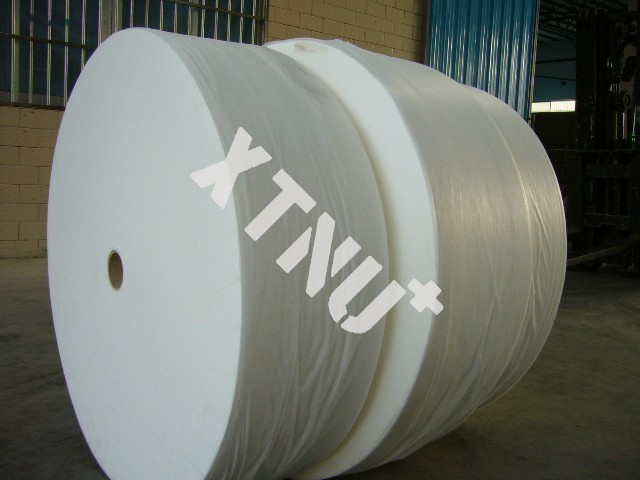
Polypropylene fibers are synthetic fibers spun from isotactic
polypropylene obtained by the polymerization of propylene. The trade
name is polypropylene in China.
Chinese name Polypropylene fiber Foreign name polypropylene fiber Single filament fineness ≤2.2 dtex Fiber length 1.5-200.0 mm
what is woven polypropylene fabric
5 Modified and new varieties
classification
Polypropylene fibers can be divided into long fibers, short fibers, spunbonded nonwovens, meltblown nonwovens, and the like.
Polypropylene long fibers can be divided into ordinary long fibers and
fine denier long fibers (single-filament fineness ≤ 2.2 dtex, which can
be used for the production of garments and decorative and some
industrial filament products. Polypropylene fine fibers have good gloss,
soft hand feeling, and drape With good properties and low density, it
is suitable for the knitting industry. When it is intertwined with
cotton, viscose, silk, spandex, etc. into cotton cap C, silk cap C,
etc., it is an ideal material for making high-end sportswear, T-shirts
and so on.
Most of the production process of polypropylene staple fiber uses
porous, low-speed, continuous technology, that is, short spinning
process. Polypropylene staple fiber and cotton blended, can be made of C
cotton fine cloth, bed sheets, that is, fiber and viscose blends can be
made of blankets, polypropylene pure and blended yarns, polypropylene
blankets, carpets, polypropylene cotton fluff filter. The thickness of
the fibers for sanitary products is 1.5-2.5 dtex, and the thickness of
the fibers for ground fabrics is 5-10 dtex. The fiber length is
1.5-200.0 mm, depending on the use of the fiber. The length of short
fibers used as concrete is 1.5-200.0 mm, the length of a diaper is
generally 40.0 mm, and the length of a ground fabric is 60.0 mm.、
what is woven polypropylene fabric
Spun-bonded non-woven fabrics, also known as filament nonwovens, are
made from polypropylene melted by extrusion spinning, drawing, plaiting,
and bonding. It has the characteristics of short process, low cost,
high productivity, excellent product performance and wide application.
Polypropylene non-woven fabrics are widely used in various fields of
production and life (such as disposable medical and health products,
primary antifouling clothing, agricultural fabrics, furniture fabrics,
and linings for the footwear industry).
Melt-blown non-woven fabrics produce fine fibers (up to 0.25 μm).
Melt-blown fabrics have a large specific surface area, small pores, and
high porosity. Therefore, their filterability, shielding properties, and
oil absorption properties are used. Non-woven fabrics produced by other
separate processes are difficult to obtain. Melt-blown non-woven
fabrics are widely used in medical and health care, thermal insulation
materials, filter materials and other fields.

-
2023-04-21
What is the main adv…
What is the main advantage of …
-
2023-04-21
Are nonwovens washab…
Are nonwovens washable and bre…
-
2023-04-21
Where are nonwoven f…
Where are nonwoven fabrics use…
-
2023-04-21
Are nonwoven fabrics…
Are nonwoven fabrics environme…
-
2023-04-21
What are the raw mat…
What are the raw materials for…
